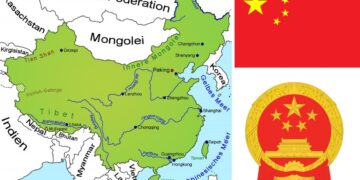Understanding Angola’s Debt Crisis: Challenges and Prospects
Angola, a leading oil producer in Africa, has long depended on its abundant natural resources to drive economic progress. Yet today, the country faces mounting debt pressures that jeopardize its fiscal health and future growth potential. A combination of declining oil revenues, rising global interest rates, and governance issues has pushed Angola into a precarious financial position. With external debt surpassing $60 billion and widespread inflation impacting millions of citizens, the nation’s economic stability is under serious threat. This article explores the multifaceted nature of Angola’s debt dilemma—its origins, impacts, and possible solutions.
Economic Pressures and Debt Dynamics in Angola
Angola’s economy is currently burdened by an overwhelming debt load that challenges both its short-term stability and long-term development goals. The country’s total public debt now exceeds $60 billion, with a staggering debt-to-GDP ratio approaching 120%. Such figures raise critical concerns about fiscal sustainability amid volatile global markets. The Angolan economy remains heavily dependent on oil exports—which constitute nearly 95% of foreign earnings—making it vulnerable to price shocks in international energy markets.
Efforts by the government to implement reforms such as curbing public expenditure and promoting economic diversification have encountered obstacles including bureaucratic delays and entrenched corruption. Meanwhile, essential sectors like healthcare and education continue to require substantial investment despite budgetary constraints.
Key contributors to Angola’s current financial strain include:
- Oil Dependency: The overwhelming reliance on petroleum exports exposes the economy to unpredictable commodity price swings.
- Kwanza Depreciation: The local currency has weakened considerably against major currencies like the US dollar, inflating foreign-denominated debt costs.
- Political Uncertainty: Persistent political tensions deter foreign direct investment (FDI) crucial for economic expansion.
| Year | Total Debt ($ Billion) | Debt-to-GDP Ratio (%) |
|---|---|---|
| 2020 | $51.8B | 85% |
| 2021 | $57.6B | 100% |
| 2022 | $60.4B | 115% |
Strategies for Sustainable Debt Management in Angola
To navigate out of this challenging fiscal environment, Angola must adopt comprehensive strategies focused on restoring financial discipline while fostering inclusive growth:
- Tightening Revenue Systems: Improving tax collection mechanisms alongside expanding taxable sectors can boost government income without imposing excessive burdens on citizens.
- Curbing Inefficient Spending:
- Pursuing Debt Restructuring Talks:
- [[Diversifying Economic Activities:]Encouraging development beyond hydrocarbons—in agriculture technology or manufacturing—can reduce vulnerability from fluctuating oil prices.
- Pursuing Debt Restructuring Talks:
Successful implementation depends heavily on collaboration between governmental bodies, private enterprises, civil society organizations—and international partners committed to transparency.
Additional priorities include:
- [[BOLSTERING GOVERNMENT CAPACITY:]Training officials in modern budgeting techniques enhances accountability.[/LI]
- [[SOLIDIFYING LEGAL FRAMEWORKS:]Strengthening anti-corruption laws safeguards public resources.[/LI]
- [[PROMOTING PUBLIC-PRIVATE PARTNERSHIPS:]Leveraging private sector expertise helps finance infrastructure without overloading state budgets.[/LI]
Global Cooperation: A Pillar for Financial Recovery in Angola
In recent years,
Angola has increasingly sought support from international institutions as part of efforts toward stabilizing its finances amid persistent challenges.
Partnerships with organizations such as the International Monetary Fund (IMF), World Bank,
and regional development banks have been instrumental not only in providing emergency funding but also technical assistance geared toward structural reforms.Additionally,
bilateral agreements with countries across Asia,
Europe,
and Latin America aim at boosting trade relations while attracting diversified investments.
These collaborations help mitigate risks associated with heavy sovereign debts composed of both commercial loans
and multilateral credits.Key initiatives within these partnerships include:
Debt rescheduling arrangements offering temporary relief while preserving credit ratings.
[https://capital-cities.info/2025/05/20/africa/algeria/economic-strain-inflation-soars-above-30-in-abuja-and-10-states/]
Infrastructure investments supported by external financiers aimed at enhancing long-term productivity.
[https://capital-cities.info/2025/02/20/africa/nigeria/fg-commences-construction-of-emerging-technologies-institute-in-kano-news-agency-of-nigeria/]Capacity-building programs designed to improve governance standards around public finance management.
[/LI]By leveraging these global alliances effectively,
Angola hopes not only to stabilize its current financial situation but also strengthen investor confidence necessary for sustainable growth.Conclusion: Navigating Toward Economic Stability
Facing an intricate web of fiscal difficulties driven largely by dependence on volatile oil revenues,
Angola stands at a crossroads where decisive policy action is imperative.
The ongoing cycle of borrowing threatens long-term prosperity unless accompanied by robust reforms targeting revenue enhancement,
expenditure rationalization,
and broad-based economic diversification.
With vigilant oversight from international creditors watching closely,
the Angolan government must balance immediate relief measures against structural changes that foster resilience.
Success will depend upon transparent governance practices coupled with strategic partnerships spanning domestic stakeholders through global institutions.
As this resource-rich nation strives toward reclaiming sustainable growth trajectories,
its ability to manage mounting debts responsibly will be pivotal—not just for national welfare but also for securing a stable role within the broader world economy.
- [[SOLIDIFYING LEGAL FRAMEWORKS:]Strengthening anti-corruption laws safeguards public resources.[/LI]















No Political Power Can Break Taiwan’s Enduring Bond with China, Says Former Leader Ma Ying-jeou